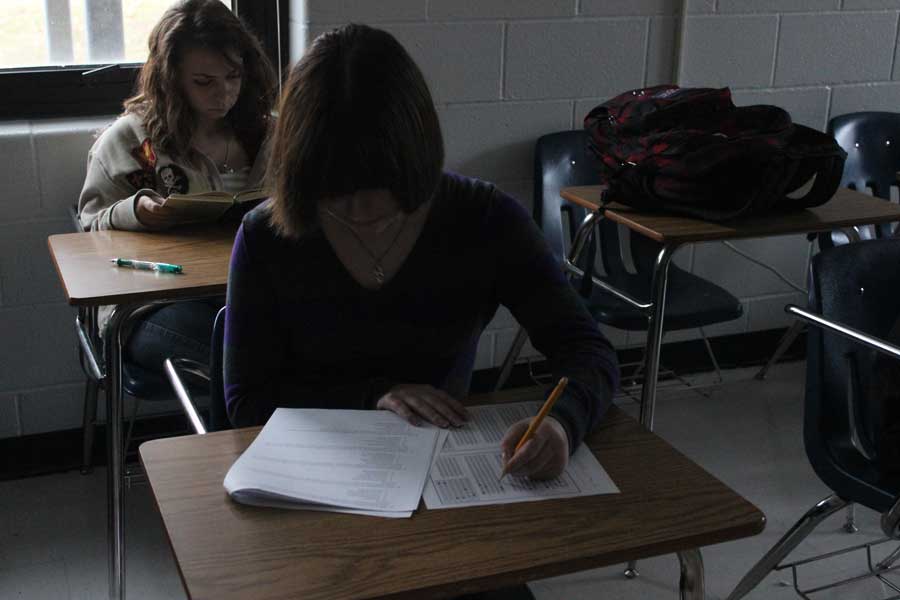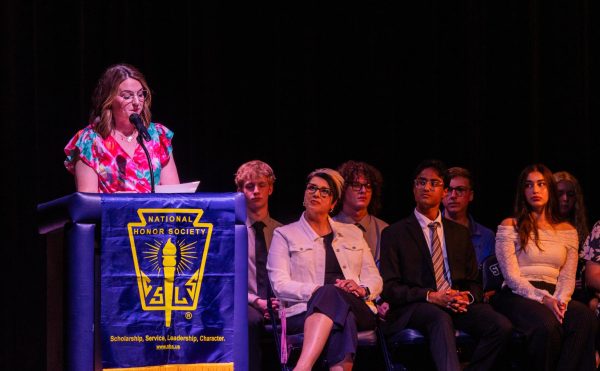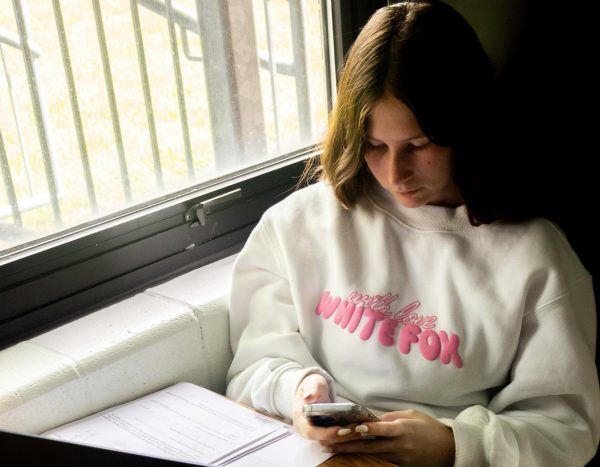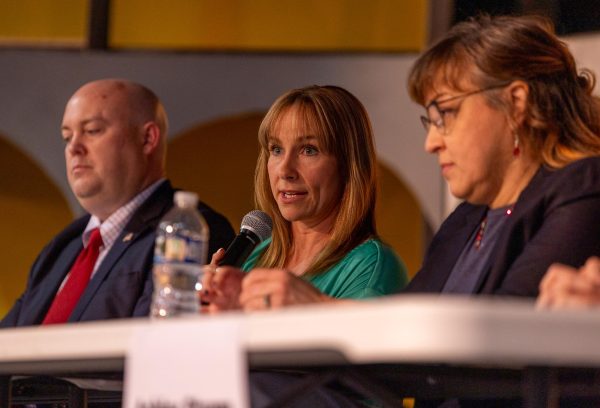High stakes tests take over
Overwhelming amounts of high stakes tests force teachers to alter their curriculum to match them.
Students take a test in Mrs. Dennigman’s AP Psychology class. Testing takes up much of their classtime and often times forces the lessons to be shortened.
High stakes tests, standardized tests that will result in important rewards or repercussions for the test taker, have been rapidly growing in prevalence in schools around the nation. The weight and importance that is placed on these tests by legislation such as No Child Left Behind and Race to the Top has resulted in a pressure on teachers to spend much of their class time preparing for these tests instead of going more in-depth in the subjects. Some teachers, like Algebra teacher Ms. Dena Rulo, have to shape their entire curriculum around preparing for the End of Course exam (EOC).
“[The EOC] does impact what I teach, because some of the topics that show up on the EOC exam are not really true, important Algebra topics,” Ms. Rulo said. “I have to cut time from my curriculum to teach things that aren’t important Algebra 1 topics, because they have showed up on the EOC exam.”
Ms. Rulo sees more importance in the understanding of complete concepts and subjects opposed to students only knowing the exact types of problems that will be featured on the EOC.
“I want my kids to move on to geometry actually remembering how to do this stuff and knowing how to do it, not just covering it. My goal as a teacher is to have them retain it and learn it for mastery,” Ms. Rulo said.
Even more so than Ms. Rulo, AP Art History teacher Mrs. Michelle McCune has a single test that is central to all of her teaching: the AP Art History test that is administered every May. In fact, the ultimate goal of the class is for students to score a 3 or higher on the AP test in order to obtain college credit for the class. Because of this, AP teachers like Mrs. McCune take special care to cover everything that they think will show up on the test. This, however, comes with disadvantages.
“The new thing AP is doing is they’re now making it where there’s only going to be 250 pieces that they give us ahead of time that they’re going to expect the students to know,” Mrs. McCune said. “So on one hand, I like it because it’s narrowing for me, and I’m not always playing the guessing game of what artwork I should teach, but then at the same time, it makes me really sad, because there’s a lot of pieces I enjoy talking about that are not part of the 250.”
In addition to the limits that AP tests already place on what material is taught, Mrs. McCune believes that the Unites States, and the Francis Howell School District, is on the track to becoming more and more standardized.
“Apparently European countries are more open to change and to changing the traditions of school and how it’s taught. And unfortunately, in the US, somehow we can’t seem to get to that level; we can’t seem to make that change,” Mrs. McCune said. “It’s almost like making it more rigid, and I’m always about being more creative and thinking in terms of how else can you make your brain work.”
Despite the ways in which high stakes tests have inhibited them from teaching what they want to and the way they want to, both Ms. Rulo and Mrs. McCune have found ways to use the tests to their advantage.
“The AP programs are really strong…It’s heightened my standards, and it’s made my teaching better, because it’s such a difficult exam that I have to up my game. I would probably have Art History a lot more fun, but because of this exam I have to be a lot more careful and make sure I cover material,” Mrs. McCune said.
Similarly, Ms. Rulo utilizes the scores she gets back from EOC tests to help her improve her teaching.
“We look at [test results] because if I score low in one area but another teacher scores high– that’s what our [Professional Learning Communities] time is for– I can say ‘hey, clearly your kids did a lot better than mine, so how did you teach that topic’ or ‘what did you do differently,’” Ms. Rulo said.
Even though teachers have found ways to make light of the heaps of testing affecting them and their students, according to Mrs. McCune, they cannot be used to accurately measure how much students understand material.
“But I think, unfortunately, it’s like how do you measure what students have learned? That’s the way it is, I guess, that whole standardized thing, that everyone gets the same exam. It’s hard to know how to get away from that,” Mrs. McCune said.
Your donation will support the student journalists of Francis Howell Central High School. Your contribution will allow us to purchase equipment and cover our annual website hosting costs. FHCToday.com and our subsequent publications are dedicated to the students by the students. We hope you consider donating to allow us to continue our mission of a connected and well-informed student body.








